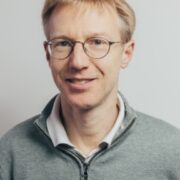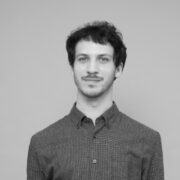
PSE Professor
The research projects funded by the French National Research Agency (ANR) are initiatives aimed at supporting scientific excellence and innovation in France. They foster collaboration between researchers and institutions to address national policy issues in various fields. PSE researchers participate in and lead many ANR projects.
Initiatives funded by the Future Investment Programs are also included here, with funding managed by the ANR.

PSE Professor
Dates: 01/04/2025 – 31/03/2029
Since the beginning of the century, Africa has been the second fastest growing region in the world (AUC/OECD, 2023), with both fast population growth and important signs of structural change in many countries. At the same time, it has also been the continent with the highest rate of deforestation over the last decade, losing on average 4 million hectares of forest every year (FAO and UNEP, 2020). Must these two processes inevitably go together? Or are there ways to facilitate economic growth while conserving forests? The objective of this project is two-fold. First, it aims to better understand the relationship between recent economic development and forest loss in sub-Saharan Africa. Second, it investigates whether there can be mechanisms that foster economic development while reducing the rate of forest loss on the continent.
Coordinator: Sciences Po

IPP Head of Pensions Division
Dates: 31/03/2025 – 30/03/2029
Air pollution has emerged as a key environmental and health issue, linked to about 6.5 million annual deaths worldwide. Increasingly, the literature has also documented impacts on all organ systems, including brain development. Of particular concern is its impact on children and disadvantaged populations, who face both heightened exposure and increased vulnerability. Therefore, this project aims to investigate the impact of air pollution on child cognitive and socioemotional development in France across time and space, and to better understand the role of these pollutants in producing socio-economic inequalities in child development. This project brings several conceptual innovations to this literature. First, air pollution co-occurs with other disadvantages, noise pollution, neighborhood characteristics etc., which are often unexplored by the literature. These factors will be incorporated in its conceptual and empirical models, both to estimate a cleaner effect of air pollution on child development, and to assess the cumulative disadvantages faced by children. Second, the data and methods used allow applying a lifecourse framework to study dynamics and accumulations of exposures over time. This is conceptually important as we know that children are subject to different social stratification processes as they age, and the neuroplasticity of their brains mean that different domains of child development have different sensitive periods during which they will be most at risk. Finally, this project stands out by utilizing a longitudinal, nationally-representative linked data; innovative methodologies; and a multidisciplinary approach. it will contribute to the academic literature and will have important policy implications.
Coordinator: University Paris 1 Panthéon-Sorbonne

PSE Chaired professor and Opening Economics Chair holder
Dates: 01/10/2024 – 31/12/2028
In many situations involving complex choices (e.g. deciding where to spend our vacations, how to orient our career, or which candidate to recruit), individuals face options they only know partially, and on which they can try to gather information. However, devising an effective information search strategy can be exceedingly challenging. In some cases, vast amounts of information can be obtained on the web in a few clicks and one can feel overwhelmed. In other cases, on the contrary, information is scarce and costly to acquire. Studying how people decide to seek or avoid information and assisting them in better identifying the most useful information to tailor their decisions, are thus significant endeavors.
The aim of this project is to highlight the fact that, even in relatively complex information retrieval problems, humans can achieve reasonable performance under certain conditions, because they can adopt strategies that approach optimal performance. The aim will be to understand what are the necessary conditions for this to occur: can we characterize situations in which optimal search can be approximated with a simpler strategy? Do people find such strategies? What cognitive or personality factors may help? Can we design intervention to help individuals improve their information search in complex situations?

PSE Chaired Professor
Dates: 01/10/2024 – 30/09/2028
INTERTAX is a research project into the impact of personal and corporate taxation on firms, taking as the starting point for the analysis the fact that it is through their ownership structure that companies are affected by household taxation. The first aim of the project will be to establish a longitudinal database for tracking firm ownership over time. Secondly, it will use corporate tax reforms to estimate their impact on firm creation, incorporation, investment, business activity, etc. From a theoretical point of view, the project aims to propose a unified model of corporate taxation that goes beyond the classic model of the user cost of capital. Finally, it will aim to integrate all personal and corporate taxation in order to measure its redistributive effects. The overall aim of the project is to put entrepreneurs back at the heart of the academic analysis of corporate taxation.

PSE Assistant Professor
Dates: 01/10/2024 – 30/09/2027
Bounded rationality refers to the idea that people typically do not perfectly optimize, but choose sensible heuristics that are easy to implement and tend to perform well enough. Using a combination of theory and experiments, we aim to study the forms of bounded rationality that are relevant in diverse real-world situations. In particular, our results will help us better understand consumer choice over multi-attribute goods, belief-updating in the presence of rare events, and strategic situations – i.e. games – in which there is an incentive to deceive. Finally, a meta-analysis of existing experiments on games will be conducted, documenting the relationship between game features and “noise” – the tendency to make random mistakes. It is the nature of bounded rationality that different situations will evoke different heuristics. In all cases, however, these heuristics are the reactions of cognitively limited agents to complex environments. Hence, all such heuristics should be driven, in part, by common factors, such as cognitive ability. So while these projects span diverse topics, the aim is that, by working on these projects in parallel, new insights will emerge.

PSE Professor
Dates: 01/10/2024 – 30/09/2029
Work from home is booming and is predicted to remain widespread in the future, which has implications for household daily life, well-being and inequality that are not yet fully understood. Work from home interested only a small heterogeneous population before the Covid pandemic, but nowadays it is widespread in the OECD, with one every five workers working at least a day per week from home in France. Most low-skilled workers do not have though the opportunity to work from home, while low-skill jobs are destroyed due to spatial mismatch. It is difficult to predict a priori whether the spread of work from home may help closing the gender gaps in paid and unpaid work, deeply rooted in cultural gender norms, or rather add to within and across household inequality in time uses. There is no theoretical model to date of household decision making and time uses, accounting for work from home. This project aims to fill these gaps in the literature, fostering understanding of work from home and its implications for household daily life, gender and societal inequality, and well-being. The aim is to develop a theoretical model of household decision making accounting for the possibility to work from home, taking from collective models, models of job search with commute, cultural transmission theory, and sociology of family and time use. New empirical evidence will be provided for a selected group of countries, which differ in terms of cultural gender norms, industrial structure, and the spread of work from home. This project will contribute theoretically and empirically to the existing literature, taking the measure of work from home from the angle of household time allocation and cultural gender norms, within a multidisciplinary approach to family time use and work from home, and shedding light on the possible implications for gender and societal inequality, which matter also for well-being.

PSE Chaired professor and PSE Stone Center holder
Dates: 01/01/2024 – 31/05/2027
Real estate has become an international investment asset, but there is little evidence about who owns real estate abroad and what are the consequences of these investments for local housing markets. In part this is because cross-border real estate investments are often carried out anonymously through shell companies. Drawing on a new data sources and a systematic exploitation of ownership linkages, the goal of this project is to analyze international real estate investment as the globally integrated market that it actually is. How does the network of intermediaries behind cross-border real estate holdings look like? What is the role of tax haven structures? And how do these investments affect host cities?

PSE Professor
Dates: 01/01/2024 – 31/03/2027
Recent research has revealed that the profit rate of long-lived US corporations is surprisingly the same and has remained stable since 1980, despite considerable idiosyncrasies in corporate characteristics. This project seeks to determine whether this stability is a fundamental trait of capitalist economies, rather than a temporary or region- specific occurrence. To investigate this question, we adopt a long-term historical approach and compare France and Germany, which was previously impossible due to inadequate data. This project has three main goals.
The first objective is to create a new dataset that covers the period from 1907 to 2001, using available historical sources that provide a wealth of economic and financial information about French and German corporations, such as profits, total assets, debt levels, dividends, and stock prices. The second objective is to conduct a systematic investigation of the rate of profit to determine whether it exhibits the same stability that has been observed recently in US companies, and whether this stability persists across different economic and historical periods in France and Germany. Finally, we aim to examine how corporate dividend strategies affect their survival probabilities, and the extent to which these strategies contribute to the stability or instability of the rate of profit, while maintaining a historical and comparative perspective, which is a key aspect of this project.
Coordinator: ENS – PSL

PSE Professor
Dates: 01/10/2023 – 30/04/2028
Several layers of imprecisions in our mental processes (‘cognitive noise’) contributes to the variability and suboptimality of decisions made under uncertainty. In this project, we propose to use incentive motivation (by varying the monetary stakes associated with individual decisions) to test the idea that cognitive noise during decision-making is regulated following a cost-benefit tradeoff (i.e., more precise cognition leading to more accurate decisions, but at the cost of more cognitive resources). Leveraging a set of behavioral tasks and an original computational framework, we will investigate the effects of incentive motivation on cognitive noise in human decision-makers. Using magnetoencephalography (MEG) recordings of neural activity, we will also evaluate the effect of incentives on the precision of the decision variables encoded in the brain. Establishing a ‘resource-rational’ neural theory of incentive motivation on cognitive noise can improve our understanding of decision-making, motivation and cognitive control.

PSE Chaired Professor
Dates: 01/10/2023 – 31/12/2027
Over centuries, France has experienced steady urban growth and structural changes, with people migrating to cities where industries and services have developed. The goal of the LANDURB project is to study the rise of cities and how it relates to changes in economic activity and structural change over the 1760‐2020 period. The French experience is of interest for Western economies that have to deal with durable built up areas sometimes located where economic activity declines, and for developing countries that are confronted with fast urbanization fuelled by important migrations from rural places. The project takes advantage of newly produced historical data recovered from digitized historical maps and individual census registers. It is composed of two parts. The first part proposes and tests theories of urban growth and structural change consistent with new stylised facts about land use and urbanization. The second part assesses how specific cities and their labor markets were impacted by historical local events affecting agriculture, manufacturing, and technologies.
Coordinator: University of Rouen (Pamina Koenig)

PSE Professor and Globalization Chair holder
Dates: 01/10/2023 – 30/09/2027
Contemporary forms of globalization contribute to increasing the distance between the consumer and the producer and make it more difficult to trace the origin of the products they consume. The project examines whether, and if so, to what extent, companies have accompanied their entry into globalized production processes by expressing their values with more responsible behavior and whether consumers have regulated firms by expressing their demand for less opacity in value chains. To achieve this goal, we follow firms in outsourcing sectors such as apparel, among the first to outsource manufacturing of the final good abroad, through time and countries, and measure not only their sourcing choices but also their choices of technology, in-house policy initiatives (green and/or social) and certifications. We also follow consumers’ purchasing choices. Our data intensive project assembles a large firm-level database to carry out policy-relevant contributions on the pro-social and pro-environmental behavior of firms in global markets.

PSE Assistant Professor
Dates: 01/10/2023 – 30/09/2025
This project aims to study the nature of male breadwinner norms in a high-stake labor market setting. Breadwinner norms could have important consequences especially in the context of LMICs, where women may feel both a dire need to increase household income and a strong pressure to conform to gender norms. By utilising a worksite set-up in which married couples can engage in short-term jobs, the project investigates how male ego or pride may conflict with improving women’s labor market performance.
Coordinator: INED

IPP Head of the Health and Independence Unit
Dates: 01/01/2023 – 31/12/2027
The KAPPA project proposes a comparative analysis of policies related to disability and those pertaining to aging and loss of autonomy, with a central focus on examining the origins, implications, and future perspectives of age segmentation in public autonomy policies. It brings together a multidisciplinary consortium of economists, sociologists, historians, demographers, epidemiologists, and statisticians from nine research institutions, as well as three associations from the medico-social sector, around a common research program.
The first series of studies investigates the historical processes that have led, in France and abroad, to the differentiation or lack thereof in public compensation policies for disability based on age. The second series focuses on the concrete implementation of this age segmentation in autonomy support systems and its implications for the involved actors, whether they are the disabled individuals themselves, their families, or service providers. Finally, the third series aims to evaluate different convergence scenarios through micro-simulation.

PSE Chaired Professor
Dates: 01/10/2022 – 31/03/2027
Coordinator: Nantes Université

PSE Professor
Dates: 01/10/2022 – 31/01/2027
The ANR SAMVAP project concerns the seafood market, for which France is the 4th largest producer in the European Union. Its aim is to study the role of buyers in the first sale of seafood products, and to evaluate the transformations of a market characterized by changing practices and the emergence of new buyers. In a context characterized by declining quantities sold due to the scarcity of resources, the central hypothesis to be investigated empirically is that new market players (producer organizations and digital retail platforms in particular) are helping to enhance the value of seafood products when they are first sold at auctions. The study of buyer behavior is a major issue from a sustainable development perspective. Given the downward trend in taxes, changes in seafood prices will determine the income trajectory of seafood professionals. The project will also study the mechanisms by which price rises can occur: increased quality of products purchased on the market, higher willingness to pay for new buyers with lower intermediate costs, increased competition between buyers to guarantee supply, or strategic purchasing order behavior to drive up prices. The work carried out within the ANR will be organized around three axes: purchasing behavior on seafood markets (axis 1), producer organizations (axis 2), and new buyers practicing direct sales to consumers (axis 3). The project will be based on modern microeconometric evaluation, using several sources of original statistical data on transactions on these markets.

PSE Professor
Dates: 01/10/2022 – 31/01/2027
We study the adaptation of firms to technology trends and resilience to shocks. While always important, this was highlighted in the aftermath of the 2007/8 crisis, and more recently during the COVID-19 pandemic, when firms adapted to both employment and demand shocks, and at the same time took on technology-intensive investments. We try to understand why some firms adapted better than others, and study the consequences of this variation across firms and locations. The research builds on our previous work, which demonstrates that adaptation is facilitated by “techies” – engineers and technicians with skills and experience in science, technology, engineering, and math (STEM). We exploit administrative data on their employment in order to gain insights into the process of innovation, technology adoption and diffusion within firms, productivity growth, mergers and acquisitions (M&As) and spatial distribution of production and innovation.

PSE Chaired Professor and Education Policy and Social Mobility Chair holder
Dates: 01/10/2022 – 30/09/2026
This project aims to contribute to the empirical literature on matching markets by studying the impact of the rules that are used to determine students’ priorities in regulated school choice procedures. The empirical analysis will be based on data from the AFFELNET procedure for assigning students to public high schools in Paris. This centralized procedure relies on the deferred acceptance algorithm to allocate students to schools on the basis of families’ assignment wishes, course capacity and priority rules that take into account students’ academic results, social background and geographic proximity criteria. This project will focus on three research questions: What is the impact of social priority criteria (scholarship quotas, IPS bonuses) on social diversity and inequalities in academic achievement? What role do geographic priority criterias play? How does the stratification of schools by academic level affect students’ educational trajectories?

PSE Chaired professor and Measurement in Economics Chair holder
Dates: 01/10/2022 – 31/03/2026
The view that externalities and commons cause market imperfections often assumes the market as the central allocation system, with imperfections seen as peripheral. However, it’s increasingly recognized that the economy is embedded in society (as argued by Polanyi) and bounded by planetary limits. Human beings, highly social animals, depend on the quality of interactions that often escape market regulation (Fleurbaey et al., 2021a). Market efficiency loses relevance when we realize market activities are just a subset of human interactions, which externalities and commons shape (Fleurbaey et al., 2021b). Given the importance of externalities and commons, they should be central in economic models, not seen as peripheral disturbances. Moreover, economic approaches often address externalities through efficiency remedies, neglecting equity. For example, Nordhaus (2011) addresses climate change by sidelining global inequality, a stance both politically and conceptually flawed. Policies must be evaluated for the real-world context, where distributive and fairness issues cannot be ignored. The aim of this project is, first, to build a conceptual framework putting externalities at the center rather than the periphery of the analysis of human activity with models depicting a variety of social interactions, and, second, to focus on three applied topics in which externalities are of paramount importance: health policy, climate policy, and corporate social responsibility. A particular focus is put on the elicitation of individual preferences over consumption, health and social interactions.

PSE Chaired Professor
Dates: 01/10/2022 – 31/12/2025
This project aims to better understand the impact of low-income support schemes through minimum wages or socio-fiscal schemes such as tax credits or schemes like the prime d’activité in France. First, we will examine how the provision of tax credits to low-income workers can affect their wages. Such transfers encourage more people to work, but may allow employers to reduce the wages they offer. Second, we will examine the relationship between tax credits and wage trends. The combined use of minimum wages and tax credits may prove to be an effective way of improving the living standards of low-income workers. Third, we will analyze how tax credits, other tax or transfer policies, and minimum wages interact to affect household incomes. By studying them in parallel in France, Germany and the UK, we will be able to identify the elements that determine the success of these public policies.

PSE Chaired Professor
Dates: 31/12/2021 – 29/06/2026
Prosocial behavior is driven, not only by formal incentives, but also by image concerns, both self- and social image. While there is a growing literature on the consequences of image concerns on ethical behavior, the interactions between self-and social-image have not been studied yet. In SOSELF, we propose a comprehensive approach to fill this gap. Our project will use a combination of theory, laboratory experiments and empirical methods relying on an interdisciplinary team. We will explore how social and self-image are tied together by a principle of coherence and how their interactions drive behavioral responses to the environment. Building on these results, we will study the optimal design of one of the main interventions used to promote prosocial behavior: moral reminders. SOSELF can inform policy in a wide range of domains and we will focus specifically on how behavioral interventions can decrease the circulation of fake news or can change company culture.
Coordinator: Aix-Marseille University

PSE Professor
Dates: 01/10/2021 – 31/03/2026
Digitalization is the sociotechnical phenomenon of adopting information and communication technologies. Beyond wages and employment, this can have important effects on non-pecuniary (NP) working conditions, job satisfaction and wellbeing at work. We study how digitalization affects these dimensions of work, as well as how it affects the way individuals trade-off wages and NP work conditions. The nature of social distancing during the COVID pandemic and the reliance of telecommuting on digital technologies have pushed these issues into the limelight. Therefore, we will also study the effects of digitalization in the context of the pandemic. The project leverages administrative matched employer-employee data to study these topics. This allows for causal inference, which is lacking in this literature. Moreover, the project studies impacts along different dimensions of working conditions (including telecommuting), sectors and occupations.
Coordinator: Université Paris Sciences et Lettres

PSE Chaired Professor
Dates: 01/10/2021 – 30/09/2025
The Innovations, Data and Experimentation in Education (IDEE) program is a center of excellence that supports the development of large-scale experimental research in education and promotes the use of its results.
To this end, the program facilitates researchers’ access to administrative data on education, as well as to methodological tools and measurement instruments; it also structures partnerships with the various players in the French education system.
Led by the J-PAL Europe at the Paris School of Economics and coordinated by the Université Paris Sciences & Lettres, the program is implemented in close partnership with the Direction de l’évaluation, de la prospective et de la performance of the Ministère de l’Éducation nationale et de la Jeunesse. It also brings together a multidisciplinary consortium of leading education laboratories from Sciences Po, Grenoble Alpes University and the French Atomic Energy and Alternative Energies Commission.
The program benefits from state funding managed by the Agence nationale de la recherche under the Investissements d’avenir program, reference ANR-21-ESRE-0034.

PSE Professor
Dates: 01/10/2021 – 30/09/2025
The covid-19 pandemic triggered a massive adoption of teleworking, which probably laid the foundations for a “new deal” in working conditions, with long-term effects. The project aims to gain a better understanding of the causes and consequences of this extension of teleworking, both in the context and working conditions specific to the 2020 pandemic, and beyond. The first part of the project attempts to identify the activities that can be teleworked and seeks to explain, among these activities, the differences in effective adoption of telework between companies. Beyond the intrinsic interest of this analysis, one of the aims is to identify sources of variation that are not linked to company productivity or employee job satisfaction, and which can be used in a second stage to assess the effects of telework: on companies on the one hand, and on employees on the other (e.g. job satisfaction, work-life balance, gender inequalities). A third stage analyzes the determinants of the continuation and success of telecommuting after the health crisis.

PSE Professor
Dates: 01/10/2021 – 30/06/2025
Oil palm agriculture has rapidly expanded in Indonesia, making it the world’s top producer. This growth affects critical tropical forests, which are vital for biodiversity and climate change mitigation. While much research has focused on large industrial plantations, smallholders—who manage 40% of the oil palm area—have received less attention.
The project aims to examine the socioeconomic and environmental impacts of oil palm expansion by smallholders across Indonesia since the 1990s. It will use detailed community and farm-level data to understand regional differences, household behaviors, and outcomes.
Key objectives include mapping oil palm expansion, studying the integration of smallholders in the value chain, assessing environmental impacts, and evaluating current policies and sustainability efforts. The research team is multidisciplinary, involving experts from various international and Indonesian institutions.
Coordinator: INED

PSE Professor
Dates: 01/10/2021 – 30/09/2025
The Socface project brings together archivists, demographers, economists, historians and computer scientists to develop technologies for large-scale processing of vast series of historical documents. Using automatic handwriting recognition, the project aims to extract the information contained in all nominative census lists from 1836 to 1936 (i.e. 20 censuses). These lists, digitized by France’s departmental archives, represent several tens of millions of images which are processed by artificial intelligence to extract information and build a database of individuals who lived in France during this period. Using this data, Socface will study social change at the local level for France as a whole, in order to propose a detailed morphology of the evolution of labor markets in France throughout industrialization.

PSE Chaired professor and International Migration Economics Chair holder
Dates: 01/10/2020 – 31/08/2025
The overall objective of the IMMCON project is to better understand how contact with immigrants can change attitudes and political behavior in Europe. A central part of the project focuses on tests of the ‘Contact Hypothesis’ which posits that, under certain conditions, greater intergroup contact reduces prejudice and exclusion. An important literature in social science and psychology has demonstrated that, at least in controlled settings, contact between majority and minority groups can reduce prejudice and encourage interethnic relationships. Yet the effectiveness of contact outside of controlled environments is much less well understood, with large uncertainty as to how policy can be designed to facilitate positive contact. Our goal is to help fill this evidence gap and hence guide policy makers in how to encourage social integration. To do so we conduct analyses at various levels. We start with a cross-country, pan-European (and beyond) analyses of the effect of globalization shocks (imports and immigration) and of their skill content on populist votes in a long-panel setting. We then turn to studies investigating the impact of the opening of a refugee center on far-right voting in France, and the role of immigrants’ residential segregation on far-right voting in the city of Milan. To look at the long-term affects of contact in schools, we use administrative data from Denmark and Finland to look at impacts of childhood contact on adult romantic relationships and the hiring practices of native managers. Finally, to look at impacts of inter-ethnic contact on residential segregation, we exploit longitudinal surveys in the US which track people from school to middle-age.
Coordinator: Assistance Publique – Hôpitaux de Paris

Emeritus PSE
Dates: 01/02/2020 – 31/01/2026
Booster is a large national research project (RHU) aiming to develop innovations (new drugs or medical devices) to reduce delays in the treatment of patients with Acute Ischemic Strokes (AIS). Hospinnomics at PSE is carrying out an ‘early’ economic evaluation (before marketing authorization) of the potential value, from a collective perspective, of some of the strategies developed in Booster, in particular those involving Artificial Intelligence. Such early assessments, however challenging to carry out, have the advantage of potentially steering R&D towards more collectively beneficial strategies, at a stage when interventions’ design is still adaptable. The research developed at Hospinnomics is not only an early assessment but also a methodological proof of concept of the value and feasibility of involving all human and social sciences at an early stage of development.